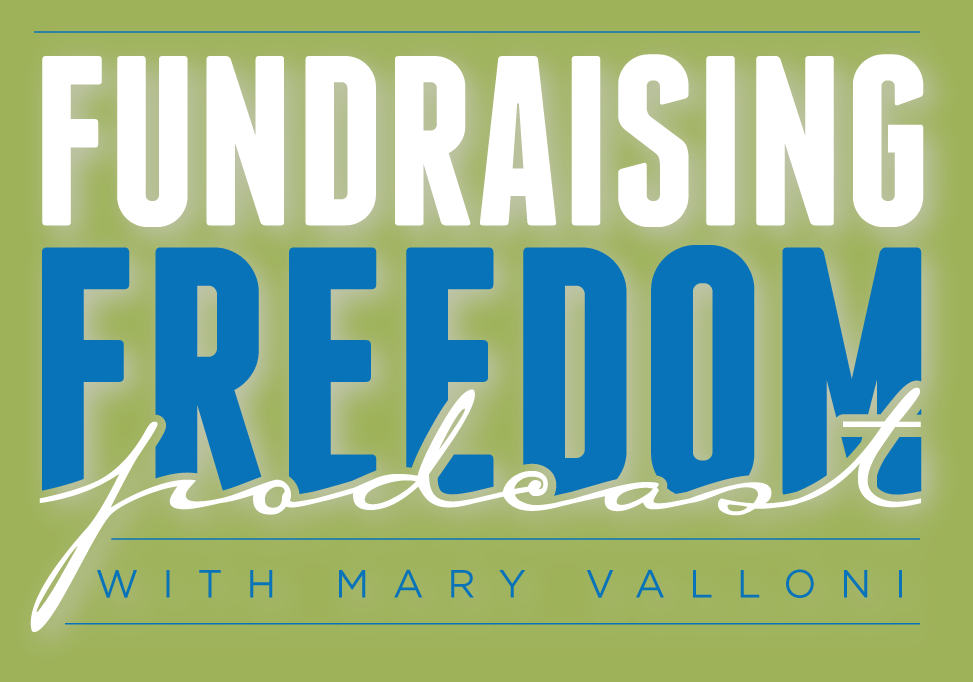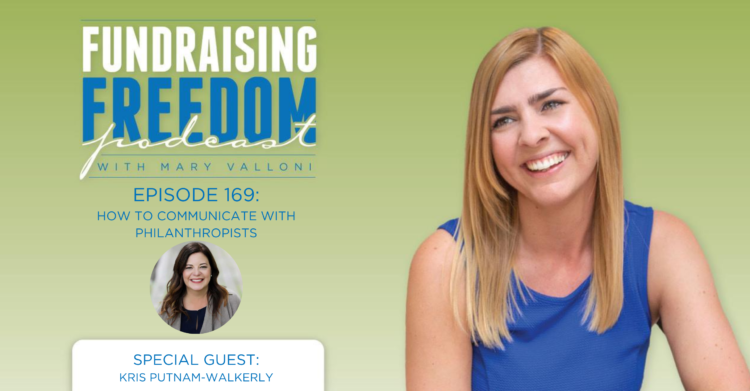Podcast: Play in new window | Download
Subscribe: Apple Podcasts | Android | RSS
We’ve been talking a lot lately about a variety of different ways that you can raise funds and today, I wanted to bring a special guest on to talk specifically about working with philanthropists. Kris Putnam-Walkerly is a Global Philanthropy Advisor and she has more than 20 years of experience working with philanthropists. Kris has an award-winning book called Delusional Altruism and she has helped hundreds of wealthy family foundations, fortune 500 companies, giving pledge signatories and wealth advisors strategically influence and allocate over a half a billion dollars in grants and gifts.
Fill in the gaps in your story and tell us how you work with people in the charitable sector.
I have been advising and consulting with philanthropists for the past 20 years. I began my career actually working at Stanford University where I was evaluating youth and gang violence prevention programs. And that was funded by a large foundation, the California Wellness Foundation. It piqued my interest because I realized funders, if they have anything, they have money and they have access to wealth. If you start with that, bring in the right experts, and you’re really thoughtful and you do your research, you can tackle a problem at its root and try to create lasting change. Philanthropy can really make a difference and help change and solve a lot of the problems that we’re dealing with. I went to work at the David and Lucille Packard Foundation, which at the time was the largest in the country. And I began consulting with other funders, the Charles and Helen Schwab Foundation, and many others and realized I not only loved philanthropy, but I loved consulting too and that really began my career. Now I work in a few ways. I help funders of all kinds and sizes. I work with ultra-high net worth donors, leaders of foundations, corporate giving programs, national, local, family foundation, corporate community, and private. I help them to clarify their strategy, and then implement their strategy. And I often am brought on as a trusted advisor. They’ll retain me to help them and be kind of strategic sounding board to navigate all aspects of their philanthropic journey.
How do you define philanthropy to the world?
Well, we’re all philanthropists because all of us have a lot of love for humanity. And we all have the ability to give of ourselves, our time, talent, treasure, and I like to add ties, which our ties to the community and the ways that we can open doors and help other people by introductions and who we know. And so, I think it’s important to recognize that, you know, we can all find ways to give.
What is Delusional Altruism?
Delusional Altruism is based on my experience and I believe donors want to make a difference and change the world and be altruistic and deeply care about the issues and communities that they’re supporting. And they’re also getting in their own way. They often don’t even realize this is happening. I wrote the book to help donors recognize the ways that they have their own blind spots, and they often are preventing themselves from achieving the impact that they seek and how to recognize that and then what they can do differently to have a more transformational impact on whatever cause they care about.
What do you see nonprofits doing really well to engage with philanthropists, and not necessarily just during this time, but throughout the year?
I really think you can’t over-communicate, especially now. And I know that a lot of nonprofit organizations when this crisis first hit were very worried about how to fundraise. To me, I think you really need to switch your mindset as a nonprofit leader and embrace what I call an abundance mindset. And that could mean many things. But I think for a nonprofit leader, it needs to mean recognizing your value, the value that you provide to the people that you’re serving, and the value that you’re providing to the donor.
What are you seeing that people are doing well, and maybe not so well in as they engage philanthropists?
It’s about communication, but it’s about your own positioning and how clear you are. How you communicate the value that you bring, why you’re the right organization to be doing this work, your accomplishments, whatever it might be, just really having clear communication, if it’s a PowerPoint deck, or it’s a two-page overview, or it’s your website. You don’t want anybody guessing as to what you do or be too vague in the description. Or be too shy about sharing your accomplishments. I think all of those things are really important. And I think secondly, and this might surprise your listeners, is you’re not asking for enough money. I remember years ago when I was consulting with Charles Schwab Family Foundation, and I would be reviewing proposals coming in. It would be for a really important domestic violence shelter in the community. And it asked for $5,000. To be honest, I would think to myself, this program costs $100,000 a year to run, ask for $50,000 because we’d probably give it to you. It costs money to hire talented people and run organizations and have bookkeeping services and do professional development, develop your board, invest in technology, all of these things. These are real costs. Pretending they don’t exist doesn’t really do anything for the service and it turns into this sort of cycle of the scarcity mindset. So I would be honest about what it really takes to run your organization and ask for what you deserve.
I hear statements like, donors only want to give to our projects into our program. They don’t want to give to operational expenses. Is that true? Or is that both?
Both. There are a lot of funders who will support core operating support. However, I think this pandemic has made it abundantly obvious that you can’t tightly restrict nonprofit organizations to do only X, Y or Z, when the rug gets pulled out from underneath them, and only A, B and C make sense or they have to reinvent the alphabet in order to proceed. I think the case will be easier to make going forward, that we need our resources to be able to navigate the work. But that said, there’s actually a lot of fear in philanthropy. That might be surprising to some people because people equate money with power. One aspect of fear from the perspective of the funder is the fear of losing control, losing control of their money once they give it away. That’s why you see so many hoops and hurdles that nonprofits have to jump through to get the funding.
What does fundraising freedom mean to you?
To me, it means taking the opportunity to explore the variety of fundraising tools that you have at your disposal and giving yourself the freedom to learn. One thing I hope everyone is doing during this pandemic is recognizing and seizing this opportunity to improve and change themselves. I’ve engaged in professional development, I’ve read books I was planning on reading that I hadn’t read before. I’ve participated in webinars, I’ve forced myself to try new technology and take risks, doing things I wasn’t comfortable doing before, intentionally to make sure that I emerge from this crisis, a stronger, better philanthropy advisor. That’s a very freeing feeling because it’s under my control, I can do it, I can do all of this for almost free. I really encourage fundraisers and, quite frankly, funders to do the same thing so that you can learn and add another tool to your toolbox.
Resources mentioned:
Six Mistakes Philanthropists Make During A Crisis
Connect with Kris:
Connect with Mary:

